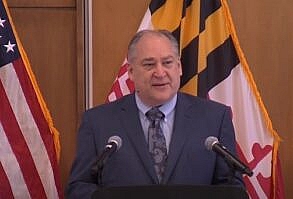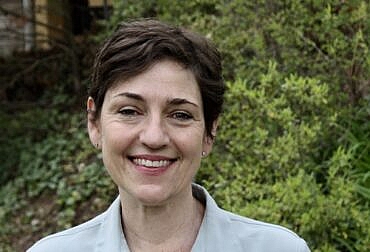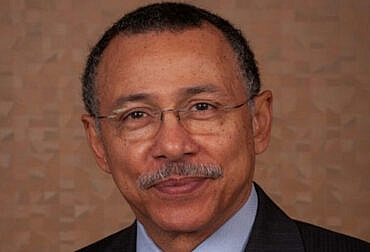Nagender Madavaram discussed with Diane Vu, Director, Office of Community Partnerships (OCP) about her leadership during Covid. She joined OCP in 2012 as the liaison to the Asian Pacific American and Middle Eastern communities and Language Access Coordinator. She also formed the Montgomery County Legal Immigration Service Provider Network, led the County’s Citizenship Initiative, served as the staff liaison to Montgomery County’s Sister Cities. The interview covered the topics of the functioning of OCP, Coordination with MCPS, Afghan refugees and Sister Cities Program.
Functioning of OCP:
Nagender Madavaram: The pandemic disturbed everybody in the county. The impact is heavy on people of color. The county initiated a program to help mostly affected people through community organizations. What role your department played in coordinating community organizations to vaccinate and distribute the food.
Diane Vu: Our office is playing a key central role to the community outreach portion of the county’s work. So, prior to the pandemic, we were launching the 2020 Census campaign. The role of our office is to serve as a bridge between the county government and the very diverse communities that it serves. We also serve as a bridge between communities and so therefore we have partnership with nonprofit organizations. Civic associations feed communities, philanthropy and businesses. We were tasked with the 2020 census outreach. In 2019, when we’re going to be spearheading this effort, we knew that it was going to be incredibly challenging. We had a really a big task to make sure that every single person in Montgomery County is counted. When we started the campaign, we took all hands-on deck type of approach and we had planned outreach in person events. We did everything that we could to get the census data.
In the midst of census task, DHHS along with a lot of other government agencies were trying to get the word out about the public health situation and encourage people to socially distance and wear masks. There was a lot of changing information around COVID. We realized very quickly that there was a big overlap between the targeted communities that we were trying to get counted for the census and the communities that were highly impacted by COVID. So, what we did was we partnered with DHHS and other agencies. We provided details of COVID resources with our census message stating that if you need food resources, visit this website or if you need rental assistance, go to this website and that found to be very helpful to our communities. When the county slowly started to reopen and back in-person services, our team was still out there cobranding the message of census along with COVID resources. As a result of the work of our community partners and the incredible work of all of our volunteers, we were able to finish 2020 census that was almost two percentage higher than what it was in 2010. It was pretty incredible, considering the circumstances, we continued that work when it comes to vaccines. We’re continuing to play a really key part in the multilingual and multicultural communities.
Nagender Madavaram: Montgomery County has done wonderful job in reaching multilingual and multicultural communities. The county is leading the nation in vaccination of people of color. Food distribution and providing rental assistance also helped people in pandemic and reduced hardship.
Diane Vu: Yeah, so I will sum it all in one word, partnerships. We are the Office of Community Partnerships and we have partnerships with almost every nonprofit organization, faith, communities, businesses, philanthropic partners, civic associations, and schools. I mean you name it, if they have a reach, whether small or large they’re in our network. This took years of work. I just want to be clear that you know it’s taking a longtime to build these relationships, partnerships and to build trust. So, when we put out the message to go to this trusted source for food resources or go to that nonprofit if you need legal services, the community really listens to us because we’ve built these relationships over such a longtime. I mean, the key is to go to the community to where they are, whether that’s physically in person at their trusted faith community or whether it is at their trusted grocery store. Meeting them on social media platform, so not just using Twitter or Facebook, but using platforms like WhatsApp, which is very popular in immigrant communities. So, it’s really going to the community and meeting them where they are both, digitally and also in person. That’s really been the key to our work.
Nagender Madavaram: How do you reach recently moved residents to the county.
Diane Vu: We have a very strong network of core community leaders in the communities of color. I don’t just mean the traditional community leaders who run a nonprofit organizations or faith community. It could be someone who is the civic association member in their neighborhood or someone who runs a food distribution for that block. These are also very powerful networks. We have taken a very longtime to build relationships with these communities. When we put up the call to our network, whether it’s through multilingual flyers, or through multilingual text messages, people really trust that the source of information because it’s coming from us. We have the County Executive’s six advisory groups that are staffed by six community liaisons who work within specific ethnic or racial or country of origin. We have African American, Asian, Caribbean African, Latino, Middle Eastern and LGBTQ Liaison Officers with respective advisory groups that are made up of community leaders. We really rely on them to help us to reach our networks. We additionally run the Gilchrist Immigrant Resource Center and this is the county’s one stop shop for newcomers. So, if someone comes into the county and they have questions regarding legal immigration service or need referrals to English classes or need to know where to get snap benefits, they can call the Gilchrest Immigrant Resource Center. They can get either served directly there or they get referred out to a government agency. These are all of the ways that we continue to reach out to newcomers and let them know that the county is here to support them.
Nagender Madavaram: In immigration communities, the obsolete leadership is in touch with the County officials or in the advisory boards. The real leaders and crowd pullers are not participating in government process. They organize huge cultural and religious events with hundreds of participants but they stay away of government programs. They are not aware of the County boards and commissions. They are real influencers. How do you reach them?
Diane Vu: I agree with you 1000%. I’m actually the daughter of Vietnamese refugees and I am an immigrant. So, I saw firsthand, how challenging cultural, linguistic and also socioeconomic barriers could be? I mean, my family had money in Vietnam then they lost everything in the war. They came over as refugees and were able to build from the ground up. We were very poor when I was growing up and by the time I went to college, my parents weren’t able to be in a better state. I’ve seen firsthand how culture, language and also socioeconomic status really impacts not only access to services, but also community engagement. I have always said it and I also used to run a nonprofit organization prior to joining the county. You know when I’m talking about a community leader, I’m not just talking about someone who is the head of a nonprofit but also about someone who’s engaged and working in their community. We need to move beyond the traditional advisory group and County Council hearings. There are other ways for community engagement and that’s what COVID has shown. Communities of color were coming out because they were getting lead and we’re trying to get access to food resources, infection prevention and COVID testing. It can be seen in equity, as COVID was developing, these communities became engaged. Around those specific issues, which is what I have been saying for a very longtime as a community organizer myself, you can get people engaged around cross cutting issues instead of looking at this from a very siloed perspective. We all have cross cutting issues such as access to food, access to services, access to civic engagement and so we need to work on cross cutting issues and also meet the community where they are beyond just the traditional advisory group method or the boards.
Nagender Madavaram: There is a Middle Eastern Liaison Officer in your department. I don’t think he is looking after Israel. If you take Muslim population, Indonesia has largest Muslim population and it does not have representation. Most of the Muslims are living out of Middle Eastern region. How do you address this issue?
Diane Vu: That’s correct. What you’re saying about the Middle Eastern community is very similar to other communities as well. So, let me be clear that when we’re talking about issues that are related to the faith communities, so Muslim community issues are covered by our Faith liaison. He is the one who deals with interfaith and faith community. Our Middle Eastern Liaison takes faith approach as well as our Asian Liaison takes a regional approach. We have some folks on our Asian American Advisory group who are Muslim but also come from Middle Eastern countries. So, we let people self-identify but for my liaisons they take a regional approach to it. My faith community liaison works across regions on specific issues.
Coordination with MCPS:
Nagender Madavaram: MCPS also doing community activities through PTAs and other channels. How do you coordinate with MCPS to outreach the community?
Diane Vu: Yes, actually we are working very closely with MCPS right now on pediatric vaccine outreach. Not only we are a part of their weekly COVID-19 operations committee, but we are also working with leadership to do very targeted outreach for vaccines in schools. We are working very closely together on that issue. A lot of our issues are cross cut with MCPS. I am basically working very closely with their faith advisory group. We have an LGBTQ Liaison Officer who is working very closely with their leadership on LGBT issues, particularly for youth. There’s a lot of overlap there, and so we work very closely with them. The teachers who are all frontline folks who see the children and their families every day. A lot of them are in our immediate network. So, when we did the 2020 census outreach, they were a very big part of the work in making sure that we reach the children and families. They’re a big part of our vaccine strategy. We’re continuing conversations with MCPS right now on welcoming newcomers who have crossed the southern border, particularly from the Northern Triangle, and so we’re on a task force with MCPS about that. So, we work very closely with them.
Afghan Refugees:
Nagender Madavaram: Since you mentioned the Afghanistan settlement activity. Can you explain details please, because many people are concerned about their safety and wellbeing?
Diane Vu: DHHS is leading Afghan resettlement task force. The task force team meets weekly and there are representatives from the three resettlement agencies in Maryland, along with the Maryland Office of Refugees and Asylum along with other community representatives. We are seeing a huge influx of Afghan refugees. We estimate that there’s over 2380 Afghan humanitarian parolees that have been assigned to resettlement agencies in the state of Maryland. Two of the resettlement agencies are actually in Montgomery County and the third one is in Prince Georges County. We’re working very closely with them. So, what happens is the parolees will get processed at Army base and then they get moved to one of the state resettlement agencies. The state resettlement agencies then work with the local resettlement nonprofit agency to resettle them within the state. So, like I said, two of the resettlement agencies happen to be in with Montgomery County. We’re working very closely to make sure that the Afghanis are supported once they are released from the resettlement agencies to DHHS. Hopefully, what we’re trying to do is make sure that they are supported by a faith community or nonprofit organization. I’ll have a warm hand off to a faith community or nonprofit. I understand this is a very difficult process. Myself is the daughter of Vietnamese refugees. So, refugees are only given about six to nine month window where they are supposed to be financially stable, and then they’re left on their own. So, again, our goal here is to really make sure that they are continued to be supported. We provide access to workforce development, English classes and whatever resources they need.
Nagender Madavaram: What facilities Montgomery County provides to refugees?
Diane Vu: The direct connection is that DHHS has case managers at the two resettlement agencies that are in Montgomery County. So, when they are processed at the resettlement agencies then DHHS provides case management. After passing six to nine months period, the faith community step in and continue to provide support.
Sister Cities Program:
Nagender Madavaram: You have a Sister Cities Program. The County Executive wanted to use the platform for business development along with cultural relationship. It is good opportunity to attract new businesses to the county. What plans do you have to lead business delegations to sister cities?
Diane Vu: Well, we’re still running our Sister Cities Program, although we’re not doing any type of international travel due to the pandemic. We are still in constant communication with our sister city partners. We have five sister cities based on the largest country of origin of our immigrants they are Morazán in El Salvador, Gondar in Ethiopia, Xi’an in China, Hyderabad in India, and Daejeon in South Korea. I happen to be the Asian liaison prior to becoming the Director of the office and so I was the staff liaison to the three sister cities in Asia. We also attached a very huge economic development component to our sister cities. Sister cities relationships can be cultural, educational and for economic development. There was a lot biotech, biopharmaceutical and technology business opportunities in three sister cities in Asia. I mean, there’s a lot of things that are happening around economic development in those three cities. Montgomery College was a very big partner for us. In those three trips, Montgomery College also sees a partnership with these sister cities and sister schools as an economic development component for them. So, once safe for us to international travel we will be able to go back to our sister cities. Even though we haven’t been able to travel to the cities but the relationships have still been active. Xi’an China gave us a very big PPE donation when COVID first hit. It was a very difficult time for anybody to get masks. Xi’an in China was able to make a very big donation to us. We got donation because of our sister city relationship and we’re in continued conversations with our sister cities.











